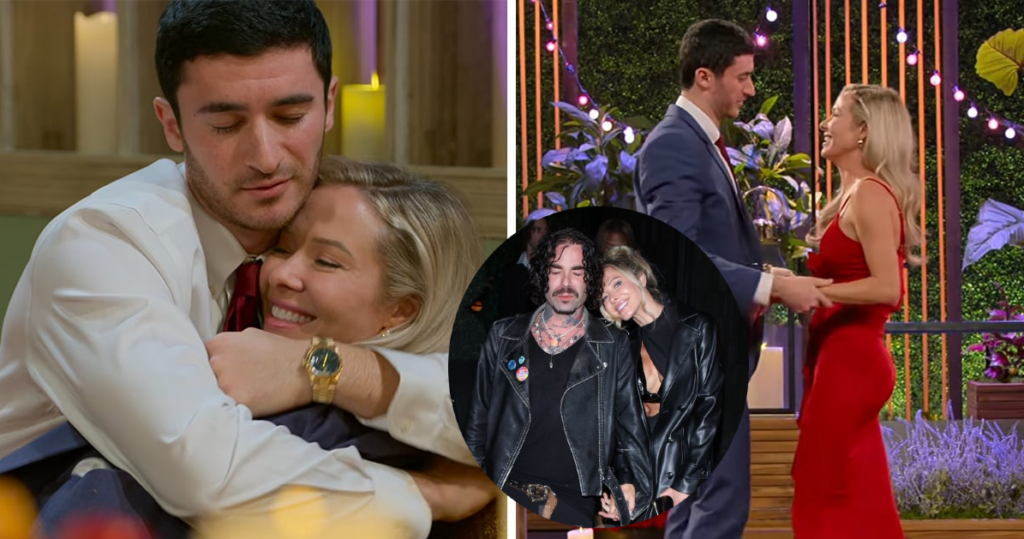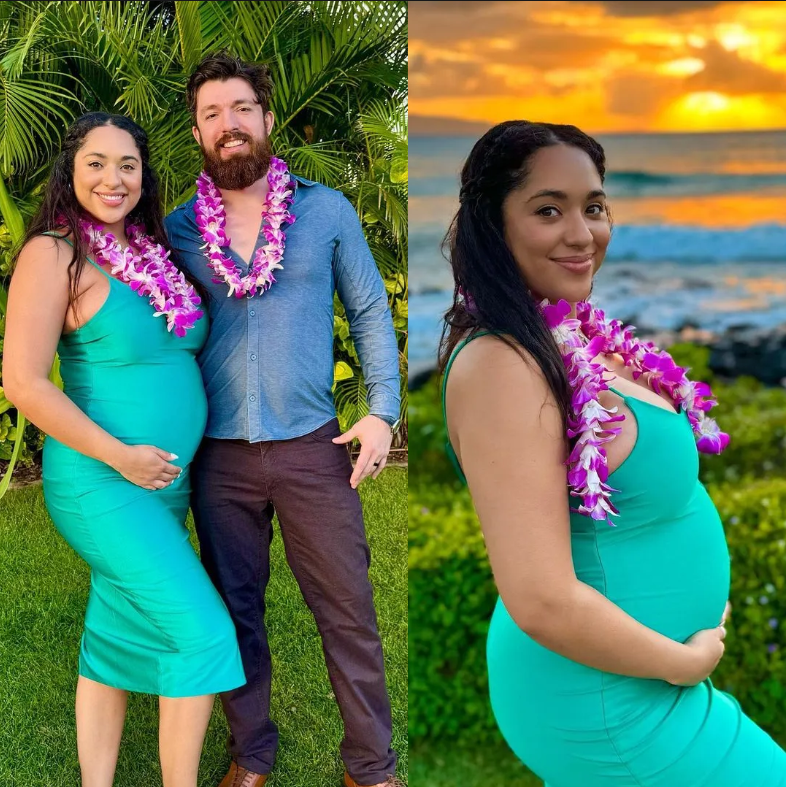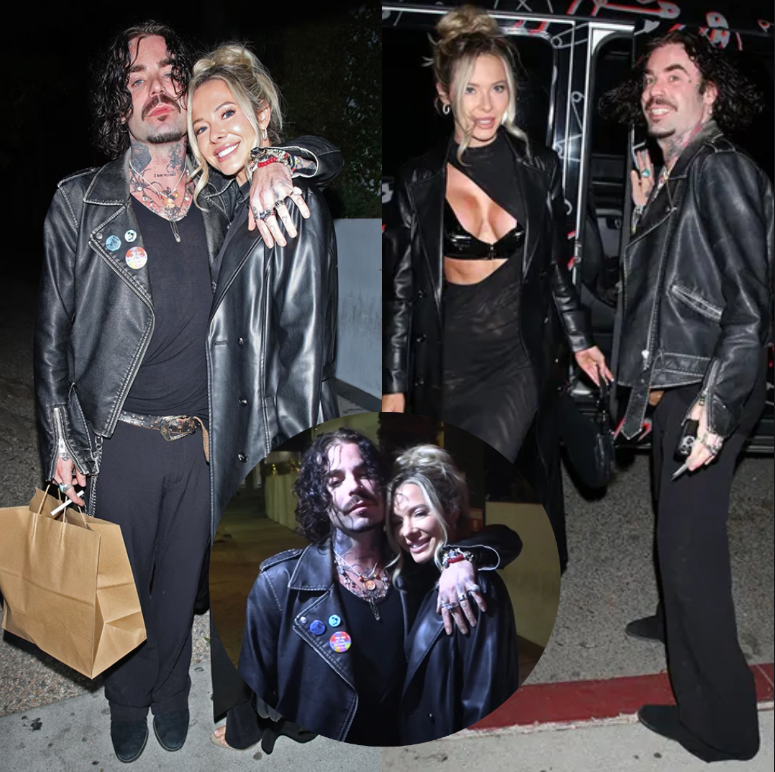
The latest season of Netflix‘s Love Is Blind is sparking a lively discussion on how ideological and political differences play a role in a couple’s relationship. Though politics rarely come up in the reality show, with a conversation about the military and imperialism, Season 7 has officially ventured into that realm. People are stating that it is a history-making moment not only on reality television, but television in general.
Season 7 of Love Is Blind features Marissa George and Ramses Prashad, a couple trying to sort through their own ideological and political differences. They also have some religious differences.
Marissa and Ramses openly discussed how those differences would affect their upcoming wedding. She told Ramses that she prefers “anything but a cis-hetero” officiant and “God can take a backseat.” Marissa also opened up about what it was like growing up in a white Mormon church of mostly men, clarifying that some of the kindest people she knows are Mormons.

“I don’t hate religion,” she said on the show. “But when God is white in a church, and you’re taught white beliefs when it comes to religion, you start to believe a lot of those things.”
Ramses admitted that he also has questions about religion.
“I pretty much grew up in the church my entire life. Fire and brimstone. Like, either you believe this or you’re going to hell,” he said. “But, inherently, in myself, I’ve just always felt like something felt off about that… Let’s say I die, and there is a God, and I’m standing before him. I don’t think he’s gonna judge me for having questions.”

In the following episodes, the couple continued to talk more about their varying experiences, including Marissa’s military service. There was a time when she was “very patriotic” and “truly believed in the military,” but now she has a different view.
“I can’t look at the military and say it completely sucks, because it changed my life and provided me opportunities,” she said, adding that American imperialism forced her to leave.
Ramses, a Black immigrant from Venezuela who is both Venezuelan and Guyanese, has an even stronger stance against the military.
“I always take the perspective of people from the outside looking in,” he said. “I wasn’t born here. I do live here now. I understand that I’m privileged to live in this country. But, at the same time, I will always heavily critique how the U.S. has sort of just destabilized entire countries.”

Social media users have lots to say about the couple’s conversations. Human rights lawyer Kristen Zeta said she didn’t expect to witness such a deep conversation on Love Is Blind.
“Who would have thought the most nuanced conversation on American imperialism and militarism on tv today would be on Love is Blind,” she wrote on Threads.
Comments on Zeta’s post also continued the dialogue.
One person wrote, “I love that they showed this at length its an important conversation! Exactly why im not walking around thanking the troops for their service , personally.”
“Both brought up very valid points,” commented someone else. “I do think he was being hypocritical though because he lives and pays taxes in the same country that she was once fighting to protect.”
“I loved the nuance and perspective here, but this is where Ramses started to fade for me,” commented another person. “He couldn’t acknowledge that soldiers and their reasons for conscribing individually are too complex to just flatly label all of them oppressive and morally bankrupt, even if the machine they’re part of really is exactly that. And then after all his moral/ethical posturing, his aversion to toxic masculinity, etc., his fiancée says “I don’t want to go on birth control” and his entire facade just crumbles.”
Other comments on Twitter include:
Per Blavity’s Shadow and Act, the other couples on Season 7 of Love Is Blind discussed how their upbringings have impacted them. Ashley Adionser, who is engaged Tyler Francis at this point in the show, talked about how she remains confident in herself despite seeing how Black women are often scrutinized harshly on reality TV.
“I definitely would say that the phrase, ‘Don’t be the angry Black woman,’ did cross my mind once or twice,” she said on the show. “Not that I am that way, but we do tend to get the persona that if you do react out of irritation or anger. So, I did try to keep my emotions to a certain level at certain times. However, you do have to show up as you, and you’ve got to take up the space, and you’ve to take up the room no matter what or where you are. After a while, once I got pretty comfortable, that wasn’t really a factor.”
Tyler also talked about how he had to learn that it was OK to be vulnerable.
“I didn’t grow up being vulnerable,” he said. “It was, ‘Men don’t cry,’ ‘Toughen it up.’ But then, I was put into an environment where 15 other men are opening up and telling me it’s OK to open. It was new for me, and every woman I talked to would say, ‘Hey, it’s OK.’ [I opened] up and [found] out that, it’s OK to express your emotions…no one’s judging you…they’re not calling you less of a man for it. And our relationship, it did change to where it’s like you can communicate about anything. You can express your feelings as a man and a woman’s not going to bash you for it. It was very comforting. It felt safe.”
As Blavity’s Shadow and Act reported, Netflix promised that Season 7 would take viewers through an unexpected journey.
“This season, the singles form deep and immediate connections, setting the stage for an unexpected journey full of twists, turns, and shocking revelations that will test each relationship well after the participants leave the pods for the real world,” the show’s synopsis stated.



